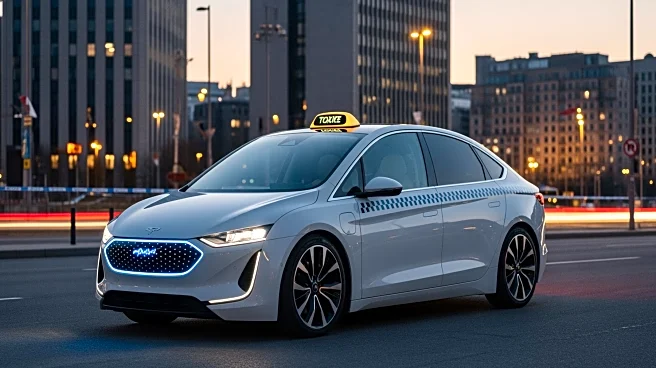What's Happening?
Waymo, a self-driving taxi service, is set to expand its operations to Tampa, Florida. The service, which operates similarly to ride-sharing platforms like Uber and Lyft, will initially involve human drivers
to familiarize the autonomous vehicles with local traffic patterns and pedestrian behaviors. This preparatory phase will involve creating detailed maps of the city's streets, intersections, and traffic signals. The expansion is part of Waymo's broader strategy to introduce autonomous driving technology to more cities, with Tampa joining other locations such as Atlanta, Austin, and San Francisco. The initiative is privately funded and aims to improve road safety and connectivity in urban areas.
Why It's Important?
The introduction of Waymo's self-driving taxis in Tampa represents a significant step forward in the adoption of autonomous vehicle technology in the U.S. This expansion could lead to improved traffic management and reduced congestion, as well as enhanced safety due to the precision and reliability of autonomous systems. The move also underscores the growing trend towards smart city solutions, where technology is leveraged to improve urban living conditions. As more cities adopt such innovations, there could be substantial impacts on public transportation policies, urban planning, and environmental sustainability.
What's Next?
Waymo's expansion into Tampa is expected to take about a year before fully autonomous taxis are operational. During this time, the company will continue to refine its technology and gather data to ensure the vehicles can navigate the city's unique driving environment safely. The success of this initiative could prompt further expansions into other cities, potentially influencing local governments to consider regulatory adjustments to accommodate autonomous vehicles. Stakeholders, including city planners and transportation authorities, will likely monitor the rollout closely to assess its impact on urban mobility and infrastructure.









